Which is better, stainless steel pipe or galvanized steel pipe
Update:2024-02-28 View(s):426 Keywords :stainless steel pipe, galvanized steel pipe, industrial steel pipe
Stainless steel and galvanized steel pipes are two common pipe materials used in the steel industry. When we choose pipe materials, we can't help but ask ourselves: Which one is better, stainless steel pipe or galvanized steel pipe?
1. Material characteristics
Stainless steel pipe is a kind of pipe with corrosion resistance. Its main components are iron, chromium, and nickel. It can resist the erosion of oxidizing, acidic, and alkaline media, so it has good corrosion resistance. Stainless steel pipes have a smooth surface and are easy to clean, so they are widely used in industries that require high hygiene standards, such as food processing, medical equipment, and other fields.
A galvanized steel pipe is a pipe whose surface is coated with a layer of zinc metal. The galvanized layer can effectively prevent steel pipes from being oxidized and corroded, improving their durability and corrosion resistance. Galvanized steel pipes usually have a long service life and are relatively cheap, so they are widely used in some general projects.
2. Corrosion resistance
Stainless steel pipes have good corrosion resistance because they contain alloy elements such as chromium and nickel. Stainless steel pipes can resist the erosion of most chemical media and are not prone to rust, so they can be used for a long time in humid, acidic, and alkaline environments. Stainless steel pipes are widely used in marine engineering, chemical equipment, aerospace, and other fields, and are especially suitable for occasions requiring high corrosion resistance.
The anti-corrosion performance of galvanized steel pipes is relatively good, but it is slightly inferior to stainless steel pipes. Although the galvanized layer can prevent corrosion of steel pipes to a certain extent, over time, the galvanized layer may become damaged, causing the steel pipes to begin to rust. Therefore, stainless steel pipes are ideal in some environments that require higher corrosion resistance.
3. Operating temperature
The operating temperature is also a factor to consider when selecting pipe materials. Stainless steel pipes can maintain better performance at higher temperatures and can generally be used in the temperature range of -196°C to 800°C. This makes stainless steel pipes very stable in high-temperature environments and suitable for the manufacture of high-temperature stoves, boilers, and other equipment. Galvanized steel pipes perform relatively poorly at high temperatures. Due to the characteristics of the galvanized layer, galvanized steel pipes are prone to oxidation reactions in high-temperature environments above 400°C, resulting in damage to the galvanized layer and affecting the service life of the steel pipe. Therefore, stainless steel pipes are a more reliable choice under high-temperature conditions.
4. Application Scenarios
Based on the above characteristics, there are certain differences in the application scenarios of stainless steel pipes and galvanized steel pipes. Stainless steel pipes are widely used in chemical, pharmaceutical, food, and other industries due to their good corrosion resistance and high-temperature stability. For example, in food processing, stainless steel pipes can ensure the hygiene and safety of products; in chemical equipment, stainless steel pipes can resist the erosion of corrosive media. Galvanized steel pipes are mainly used in some common engineering projects, such as water supply, natural gas, and other transportation systems. Galvanized steel pipes can provide certain anti-corrosion properties and are suitable for some occasions with relatively low corrosion resistance requirements. In addition, due to the relatively low price of galvanized steel pipes, they are often used in some engineering projects where economic considerations are important. To sum up, stainless steel pipes and galvanized steel pipes each have their advantages and disadvantages. Which one is better depends on the specific application scenarios and needs. If you have high requirements for corrosion resistance and high temperature stability, stainless steel pipes are a better choice; and for some general engineering projects, galvanized steel pipes are an economical option. When selecting pipe materials, it is recommended to comprehensively consider all factors based on actual needs to achieve the best use effect.
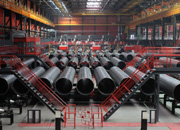 Threeway Steel is known as a professional supplier engaged in manufacturing and distributing a wide range of steel pipe, and our headquarter located the central part of China – Hunan and six associated factories throughout China.
Threeway Steel is known as a professional supplier engaged in manufacturing and distributing a wide range of steel pipe, and our headquarter located the central part of China – Hunan and six associated factories throughout China.
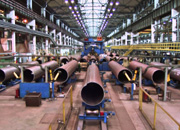 Threeway Steel is known as a professional supplier engaged in designing, manufacturing and distribution of a wide range of steel products with the headquarter located the central part of China – Hunan and six associated factories throughout China.
Threeway Steel is known as a professional supplier engaged in designing, manufacturing and distribution of a wide range of steel products with the headquarter located the central part of China – Hunan and six associated factories throughout China.
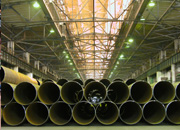 Threeway Steel is known as a professional supplier engaged in designing, manufacturing and distribution of a wide range of steel products with the headquarter located the central part of China – Hunan and six associated factories throughout China.
Threeway Steel is known as a professional supplier engaged in designing, manufacturing and distribution of a wide range of steel products with the headquarter located the central part of China – Hunan and six associated factories throughout China.
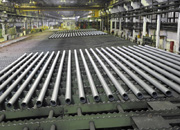 Threeway Steel is known as a professional supplier engaged in designing, manufacturing and distribution of a wide range of steel products with the headquarter located the central part of China – Hunan and six associated factories throughout China.
Threeway Steel is known as a professional supplier engaged in designing, manufacturing and distribution of a wide range of steel products with the headquarter located the central part of China – Hunan and six associated factories throughout China.
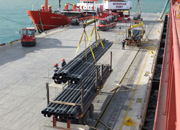 Threeway Steel is known as a professional supplier engaged in designing, manufacturing and distribution of a wide range of steel products with the headquarter located the central part of China – Hunan and six associated factories throughout China.
Threeway Steel is known as a professional supplier engaged in designing, manufacturing and distribution of a wide range of steel products with the headquarter located the central part of China – Hunan and six associated factories throughout China.

